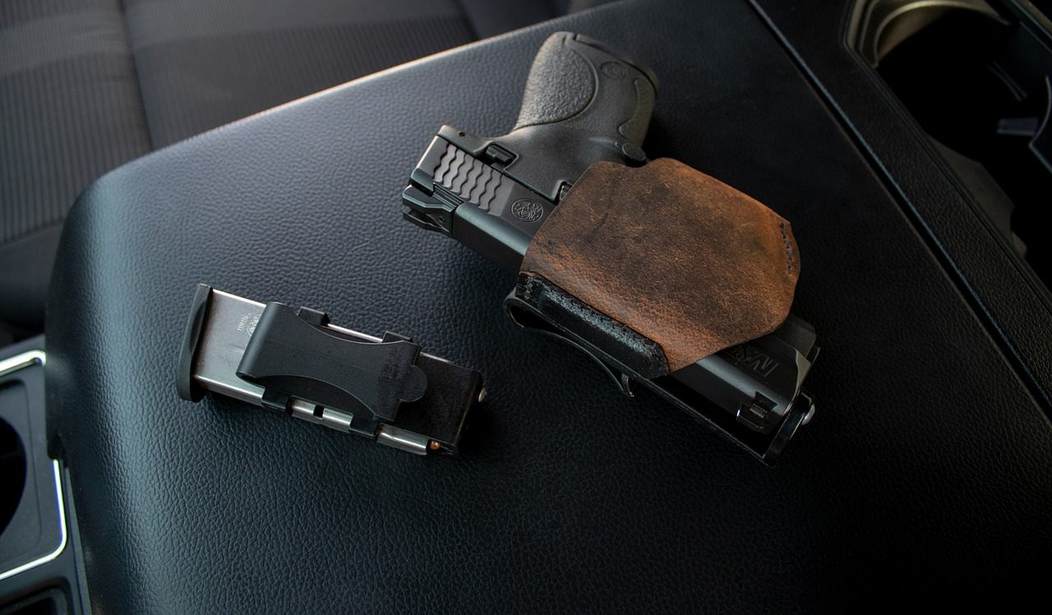The spectrum of opinions on who may or may not be able to possess firearms is broad. One camp might say everyone has a right to arms, period. Another camp might say that no one should be able to have arms of any type, period. In between these diametrically opposite ideals lies federal and state disqualifiers for the possession of firearms.
I personally don’t want society’s most violent offenders being able to arm themselves, but that really does not matter, does it? Society’s most violent offenders that want to crime-on will get their hands on firearms regardless of the law or my desires. They make their own laws and grant themselves rights. I’m also of the belief that if someone has paid their debt to society, they should be fully, or be able to be fully reinvested with all their rights. Reading about a recent conviction involving a possession charge being overturned shows me that there is still room for reason in our justice system.
This case hails from Kansa and the United States Court of Appeals for the 10th Circuit. The case is known as United States v. Devonshay Hilleland.
From an order and judgement:
Devonshay Hilleland was convicted of possession of a firearm in violation of 18 U.S.C. § 922(g)(1) and 18 U.S.C. § 924(a)(2). Hilleland admitted to possession of the firearm. But he argues that he does not qualify as a felon under § 922(g), and thus it was lawful for him to possess the weapon.
Hilleland has a prior Kansas burglary conviction. Under the Kansas sentencing scheme, the state court was required to give Hilleland a sentence of probation.1 It sentenced Hilleland to 18 months of probation and a 13-month suspended sentence of imprisonment. Because Hilleland did not materially violate the conditions of his probation, he was not required to serve the 13-month suspended sentence.
Hilleland was then charged in federal district court with unlawful possession of a firearm under § 922(g). Section 922(g)(1) prohibits possession of a firearm by anyone “who has been convicted in any court of, a crime punishable by imprisonment for a term exceeding one year.” The district court found that Hilleland’s prior Kansas conviction qualified as a “crime punishable by imprisonment for a term exceeding one year,” because Hilleland could have received the suspended sentence of 13 months of imprisonment if he had violated his probation.
Hilleland’s situation reminds me of those plea bargains that you’d read about involving someone that takes a felony for not having to serve any time. What benefit does that do to society? Honestly. Branding someone a felon and there being actually no retribution in the way of paying a civic debt in one way or another does what? If anything our prosecutors are doing damage for no reason by marking people in such ways. If they’re not so dangerous that they don’t have to be in prison, then why should they be stripped of their rights? Hilleland’s case is quite similar to such situations. The judgement sets the stage and record straight:
But the district court did not have the benefit of United States v. Hisey, 12 F.4th 1231 (10th Cir. 2021), which was published during the pendency of this appeal. The Hisey court considered the same Kansas sentencing scheme. It found that a mandatory sentence of probation, even with a long suspended sentence of imprisonment, was not a predicate offense under § 922(g).
[…]
Here, just as in Hisey, Hilleland received a mandatory sentence of probation for his state offense. Hisey had to receive probation because he met certain characteristics, while Hilleland had to receive probation because he did not meet certain aggravating characteristics. This is a distinction without a difference—both defendants had a mandatory sentence of probation.
Hisey instructs that a crime punishable only with mandatory probation, even with a suspended sentence of imprisonment, is not a predicate crime under § 922(g).Thus, Hilleland, like Hisey, does not fall into the class of persons prohibited from possessing a firearm under § 922(g). He could not have committed the § 922(g) offense that he was sentenced for.
For the reasons above, we reverse Hilleland’s conviction for unlawful possession of a firearm and remand for any further proceedings in the district court.
The judgement makes sense. Parroting what was mentioned earlier; if someone is too dangerous to have their Second Amendment right, they probably should be incarcerated for their crimes. If the person has proved to not be a threat to the safety and welfare of society, then where’s the problem?
The subject of felons in possession might be too taboo for our High Court to hear anytime soon. They have turned down a few cases involving non-violent felons that are disqualified from possession of firearms. One of the cases involved bootleg cassette tapes and the other an individual that got pinched for non-payment of child support. I think someone that bootlegged cassette tapes back when we were all wearing neon nylon soccer shorts and playing hacky sack is not a menace to society.
Eventually a system does need to be put in place that is not onerous that will return rights to those that have been reformed. Isn’t that part of the process of incarceration? To reform? There sure have been many initiatives that restored the voting rights of felons. I don’t hear the people advocating for that process saying “all rights matter”. Just the convenient ones matter to the anti-freedom caucus. Too much reform and reinvestment of rights must be an overload for the progressives. This case, I’d mark up as a win. Hopefully Hilleland will continue to be on the up and up and be a model in case law.







Join the conversation as a VIP Member